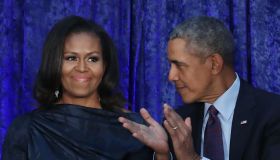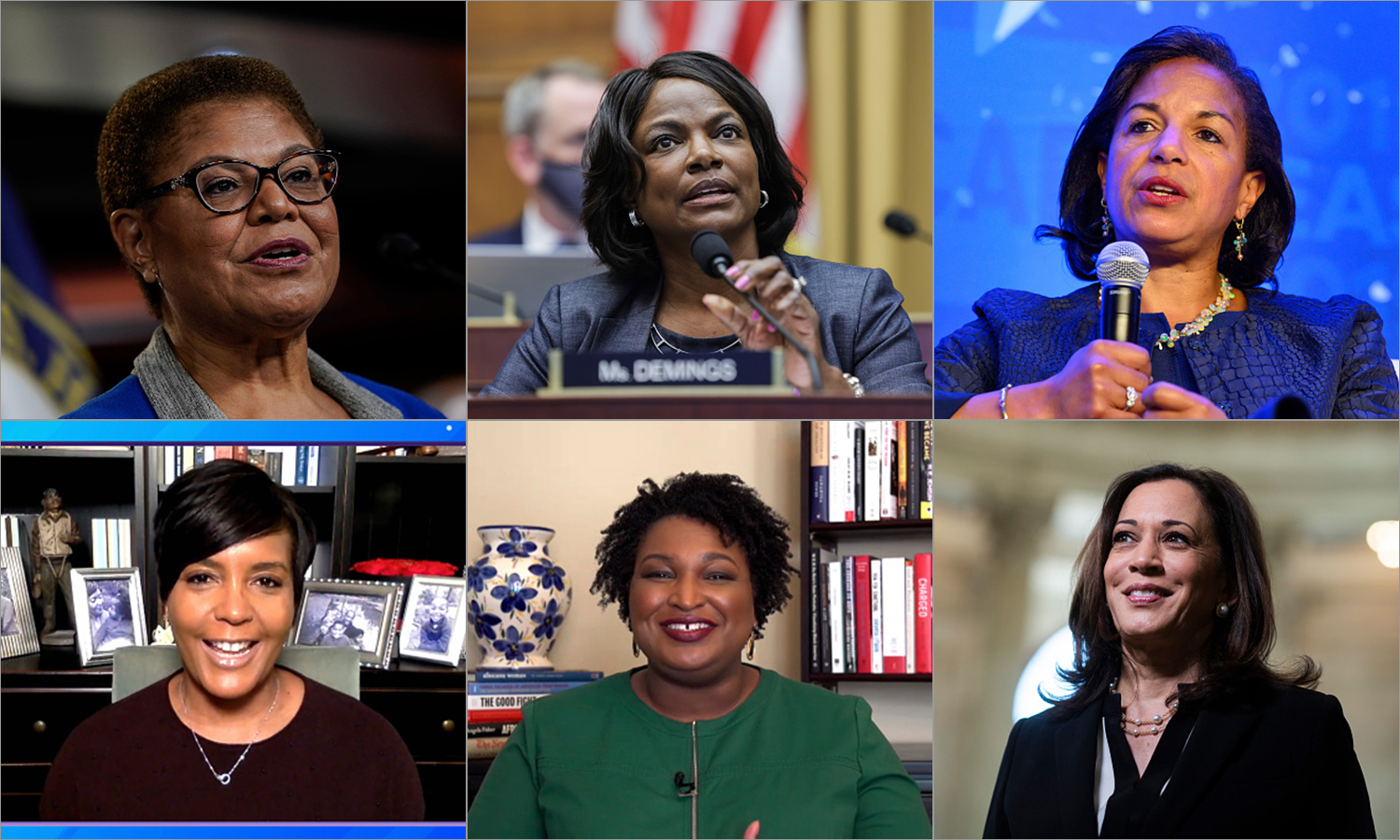Michelle Obama Says She 'Understands' Trump Voters Over Non-Voters
Michelle Obama Says She ‘Understands’ Trump Voters But ‘Our Folks’ Who Didn’t Vote Felt Like ‘Slap In The Face’

Source: Dutch Press Photo/WENN.com / WENN
Michelle Obama is clearly disappointed with Black people who didn’t come out to vote in the 2016 presidential election, and she’s letting her frustrations known in her upcoming Netflix documentary “Becoming” according to New York Post.
“It takes some energy to go high, and we were exhausted from it … when you’re the first black anything,’’ she explained, referencing her husband Barack Obama, who became the first Black president in 2008.
“You know, the day I left the White House, it was painful to sit on that stage, and then a lot of our folks didn’t vote — it was almost a slap in the face,” she said, talking to a group of black schoolchildren about the 2016 presidential election where Donald Trump won the office.
“I understand the people who voted for Trump,” she continued. “The people who didn’t vote at all, the young people, the women, that’s when you think, man, people think this is a game.”
“It wasn’t just in this election. Every midterm,” Michelle Obama continued. “Every time Barack didn’t get the Congress he needed, that was because our folks didn’t show up. After all that work, they just couldn’t be bothered to vote at all. That’s my trauma.”
According to the United States Census Bureau, the Black voter turnout rate dipped for the first time in 20 years in a presidential election, declining from a record high of 66.6% in 2012 to 59.6% in 2016. A larger percentage of young Black voters didn’t come out to cast their ballad in comparison to older voters as well. However, in general, more Black women came out to vote in comparison to Black men, and most exit polls showed that they overwhelmingly voted for Hillary Clinton as supposed to Trump.
Michelle Obama’s comments are sure to stir some discussion, considering she didn’t provide much context to the reason why Black people might not be voting.
One glaring reason is voter suppression in states across the country, not to mention the disenfranchisement of thousands of incarcerated Black people and those with a criminal record.
The United States Census Bureau also reported that there are still many Black people who aren’t even registered to vote, especially amongst younger Black voters. The bureau reported 23.5% of 18 to 24-year-olds are not registered to vote, although this percentage goes down the older the age range.
All these things are important to campaign strategies for viable candidates. Clinton had a high turnout rate for Black people over 45 — around 90% of this age group voted in her favor, according to CNN. However, 85% of Black 18 to 29-year-olds voted for Clinton. This could be due to a number of things, including a lack of voter registration for this age group as well as Clinton’s messaging. Clinton didn’t have the best support amongst millennials and younger generations.
“If you look at age variation, younger blacks were way more likely to cast third-party or ‘other’ votes than their peers,” political scientist Andra Gillespie told U.S. News. “They wanted her to address criminal justice and Black Lives Matter issues. They were [also] the ones thinking, ‘You know, I don’t want my vote taken for granted by the Democratic Party’ kind of thing. You have to show them — ‘Your vote matters.'”
Even candidates like Bernie Sanders, who ran in the 2016 and 2020 presidential primaries, had his issues with Black voters. Sanders’ supporters tended to skew young, however, Black staffers who used to work on his campaign have reported issues with how he targets and organizes Black people. They’ve even accused national campaign leaders of not giving local leaders the resources and leeway they need to secure Black votes.
“I have not been able to do my job of building a base in the African-American community because of interference from National on a number of critical strategic decisions that have impeded our ability to gain traction among this key demographic needed for victory,” said Kwadjo Campbell, a former campaign director for South Carolina — a state where Bernie lost the Black vote by a large margin. Other organizers who used to be apart of Bernie’s campaign have echoed similar sentiments.
Time will tell how Black voters show out this year, especially in the midst of the coronavirus, which is disproportionately impacting Black people, and in the midst of continued voter suppression.
SEE ALSO:
African Leader Rips China’s Racism: ‘As If The Black Person Is Carrying The Covid-19!’
Black Twitter Reacts To Don Lemon Destroying Trump Over His Obsession With Obama



















